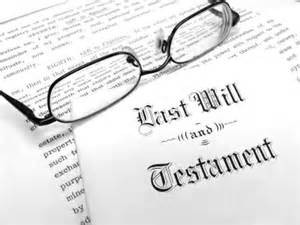Avoid These Common Estate Planning Mistakes
 The most common estate planning mistake may surprise you. “The mistake actually isn’t part of the will and trust,” said Dan Prebish, head of life services events at Wells Fargo Advisors, based in St. Louis. “It actually has to do with beneficiary designation.”
The most common estate planning mistake may surprise you. “The mistake actually isn’t part of the will and trust,” said Dan Prebish, head of life services events at Wells Fargo Advisors, based in St. Louis. “It actually has to do with beneficiary designation.”
Prebish said people sometimes fail to designate who will gain control of various assets upon one’s death. “It’s not uncommon to find that someone still had their ex-spouse named,” as the one to receive control of the asset, he added.
According to thestreet.com’s article, “How to Avoid the Most Common Estate Planning Mistake,” addressing and fixing one of the most common estate planning mistakes is relatively simple.
When you change the beneficiary on a retirement account, the update can be as easy as filling out a form. But it’s the communication with your heirs that’s key, especially since estate planning isn’t the most enjoyable topic to discuss.
Surprises are what cause hurt feelings and even litigation. As a result, you need to figure out a way to explain the estate planning changes to your children or heirs. The starting point to any successful estate plan is a will, which is a legal document that details which heirs are to receive which assets or properties you own.
Online programs can be helpful, but user error is typically how things go wrong when drafting wills without the help of an attorney.
Another factor is taxes. A person who has a total estate of less than $5.45 million in 2016 won’t pay any federal estate tax, but above that, it’s a 40% flat rate (the threshold for the federal estate tax was raised a bit for 2016 from $5.43 million in 2015.).
All the same, federal estate taxes generally won’t be a concern for most Americans because one would need an estate worth over $5.45 million in order for the federal estate tax to apply.
Each of us has a lifetime exemption up to that threshold. However, you should keep in mind that individual states have different thresholds. For example, some states have thresholds that are only in the six figures, which may affect more people.
Talk to a qualified estate planning attorney to draft your comprehensive estate plan. Don’t be tempted to go to the Internet and try it yourself.
Reference: thestreet.com “How to Avoid the Most Common Estate Planning Mistake”
Let us help you avoid these mistakes, set up a complimentary consultation today!










